-
18 June 1269 –Birth of Eleanor of England, Countess of Bar
1291-Death of Alfonso III of Aragon
1318 –Birth of Eleanor of Woodstock
1429-Under Joan of Arc, French Victorious at Battle of Patay
1452-Pope Nicholas V Authorizes Enslavement of Saracens and Pagans
1464-Pope Pius II Tries to Launch a Crusade Against Turks in Italy
1525 - Henry Fitzroy made Duke of Richmond and Somerset, and Lieutenant-General of the North

1529 -Catherine of Aragon’s First Appearance at the Legatine Court
Catherine of Aragon was loudly applauded as she made her way to the Legatine Court. Once inside, she challenged that authority of the Court and the qualification of the two legates to hear the cast. She stated her wish for the case to be heard in Rome, but this was denied. Both Catherine and Henry were told to reappear on 21st June.
source:http://duchessofmanchester.blogspot.fr/

1541 - The Irish Parliament changed Henry's title from Lord of Ireland to King of Ireland
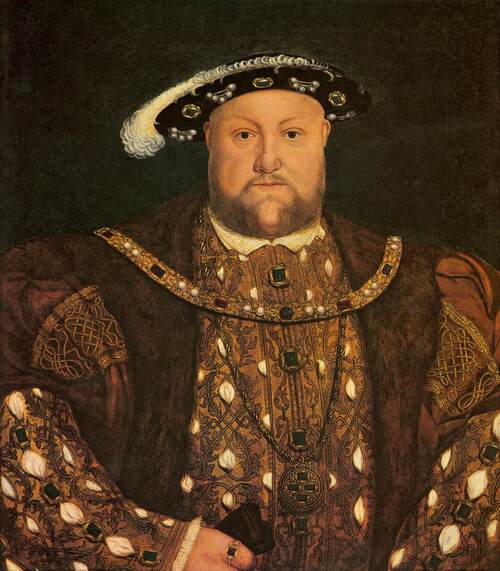
1546 - Anne Askew was arrested and taken to the Tower for 'questioning' on charges of Heresy.
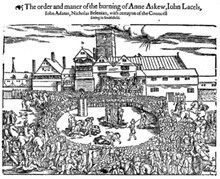
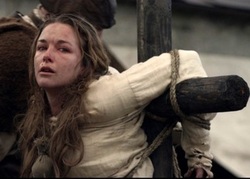
1560- Gilbert Bourne, Bishop of Bath and Wells, was imprisoned in the Tower of London for refusing the Oath of Supremacy to Queen Elizabeth.

1782-Anna Göldi is Last Person Executed for Witchcraft in Europe

source:http://www.thetudorswiki.com/
-
17 June 1497 - Battle of Blackheath
The Cornish Rebellion of 1497 (Cornish: Rebellyans Kernow) was a popular uprising by the people of Cornwall in the far southwest of Britain. Its primary cause was a response of people to the raising of war taxes by King Henry VII on the impoverished Cornish, to raise money for a campaign against Scotland motivated by brief border skirmishes that were inspired by Perkin Warbeck's pretence to the English throne. Tin miners were angered as the scale of the taxes overturned previous rights granted by Edward I of England to the Cornish Stannary Parliament which exempted Cornwall from all taxes of 10ths or 15ths of income.
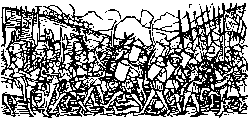
1536-Examination of Lady Mary
Examination of Sir Anthony Browne.
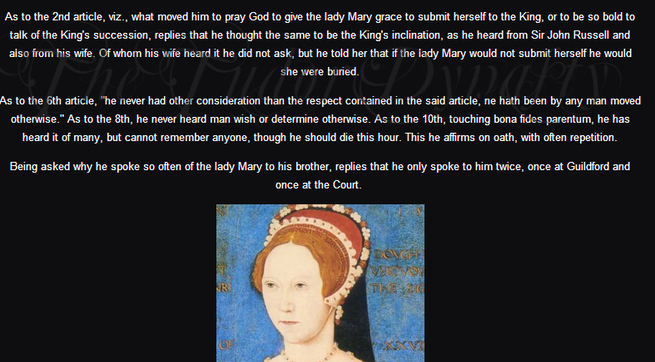
Charles V. to Chapuys
Since our last written from this place we received letters by one of the servants of viscount Hannaert, in which he writes that Francis has declared to him that he would no longer have an ambassador there from us, and intended immediately to recall his own resident with us. In this, as in other things, he shows the perverse inclination he always had for war, which he has re-commenced, and that it was against us. Today we will give his own ambassador congé as soon as he asks for it. Our ambassador has also informed us that he had lately had some communication with the English ambassador in France, who intimated that if we invaded France the king of England would be bound by treaty to assist in its defence. As this may have been said by information which he had from the King his master, and in any case the French will probably put it forward, you will endeavour to find out on this point from Cromwell and others the inclination of the king of England, and when you find it advisable point out that the King cannot aid the king of France, but is expressly bound to declare himself on our side against France by the reasons which we have already written to you, especially in our letters from Gaeta of 18 March, to which we can only add what has since taken place,—Francis having re-commenced open war, not only against the duke of Savoy, a vassal of the empire and our ally comprehended in the treaties of Madrid and Cambray, but directly against ourselves, as he has plainly declared and written almost everywhere in Christendom, and has expressly told Hannaert and others that he meant to have Milan either by consent or by force. He still holds all that he has taken from the duke of Savoy, and as abovesaid has dismissed my ambassador Hannaert, declaring expressly thereby that he is at war with us, although we have never till now made any attempt against his kingdom, and we cannot think that the king of England, with his great wisdom and virtue, does not see clearly that we have been provoked and compelled to this war, and that we have the right of those who defend themselves to pursue an enemy as far as they can, and that the king of England is fully bound to assist us against him. We desire you to put these points forward, either that the King may declare himself on our side if you think good, or if not, at least that he remain neutral, although in this latter case he will do us manifest wrong. As we know not whether what we have written to you since the death of Anne Boleyn will have rendered the King better disposed to the re-establishment of our friendship, we cannot write more except to leave this to your discretion; and if the King has married Mrs. Semel, as you wrote last to Granvelle, which is confirmed from France, you will not forbear to see if the said renewal of amity can be arrived at, and you will conduct yourself towards the said Semel as you think most conducive to this object and to the weal of our cousin the Princess. Asti, 17 June 1536.
1551 - Death of Sir George Blage, courtier, poet and friend of Sir Thomas Wyatt the Elder
1579-Sir Francis Drake claims San Francisco Bay for England.

source:http://www.british-history.ac.uk/
-
16 June 1332 - Birth of Isabella de Coucy, English princess
1397 - Death of Philippe d' Artois
1483- The coronation of Edward V was cancelled
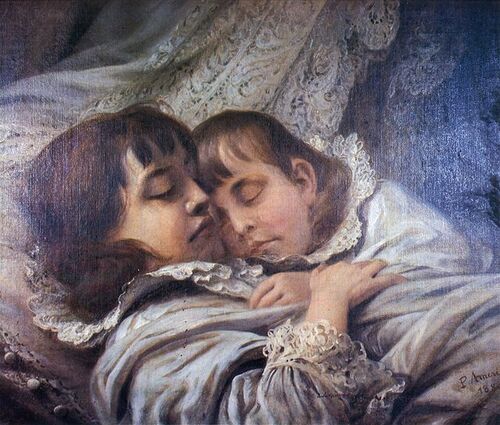
1487-The Battle of Stoke Field (16 June 1487) may be considered the last battle of the Wars of the Roses, since it was the last major engagement in which a Lancastrian king faced an army of Yorkist supporters. The Battle of Bosworth, two years previously, had established Henry on the throne. The Battle of Stoke Field was the decisive engagement in an attempt by leading Yorkists to unseat him in favour of the pretender Lambert Simnel.
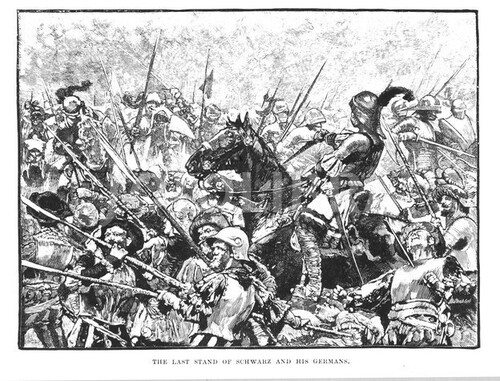
Though it is often portrayed as almost a coda to the major battles between York and Lancaster, it was fought between well-equipped armies of comparable size. Casualties on both sides were very much heavier than at Bosworth, in part because of the concentrated and attritional nature of the struggle. In the end, though, Henry's victory was crushing. Almost all the leading Yorkists were killed in the battle.
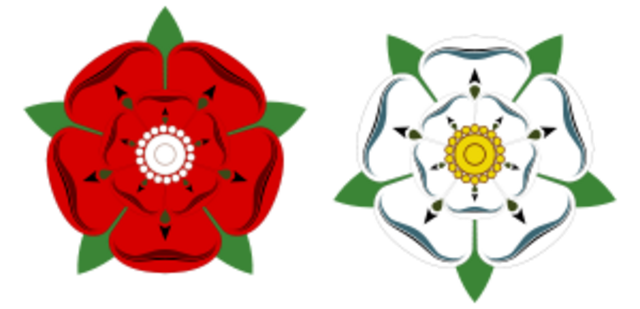
1567-Mary, Queen of Scots was imprisoned in Lochleven Castle (Scotland)

source:wikipedia
-
15 June 1215-King John meets with his Barons and signs Magna Carta at Runnymede
1330-Birth of Edward, the black prince, prince of Wales
1381-Wat Tyler, leader of English Peasants' Revolt is killed on Blackheath whilst meeting with King Richard II
1519 - Birth of Henry Fitzroy.He was the son of King Henry VIII of England and his mistress Elizabeth Blount

1520 – Pope Leo X threatens to excommunicate Martin Luther in papal bull Exsurge Domine.
Exsurge Domine (Latin Arise O Lord) is a papal bull issued on 15 June 1520 by Pope Leo X. It was written in response to the teachings of Martin Luther which opposed the views of the papacy. It censured forty one propositions extracted from Luther's 95 theses and subsequent writings, and threatened him with excommunication unless he recanted within a sixty day period commencing upon the publication of the bull in Saxony and its neighboring regions. Luther refused to recant and responded instead by composing polemical tracts lashing out at the papacy and by publicly burning a copy of the bull on 10 December 1520.

1536 - Henry VIII sent members of his council, led by Thomas Howard, 3rd Duke of Norfolk, to visit his daughter, the Lady Mary, and bully her into accepting her father as supreme head of the Church in England, and acknowledging that she was not the legitimate heir to the throne.
The Princess Mary's Submission.

Lady Mary to Henry VIII
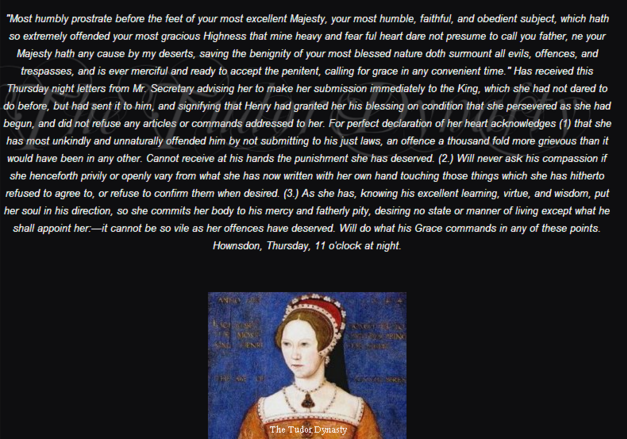
1540-François I to Marillac
Mr. Wallop, the English ambassador, informed me yesterday of the taking of Mr. Cromwell, news which has been to me not only agreeable, but such as, for the Perfect amity I have always borne towards my good brother, I have thanked God for; praying you to present him the letters of credence I have written you (copy enclosed), and tell him from me that he has an occasion to thank God for having let him know the faults and malversations of such an unhappy person as Cromwell, who alone has been the cause of all the suspicions conceived against not only his friends, but his best servants. He shall know how much the getting rid of this wicked and unhappy instrument will tranquillise his Kingdom, to the common welfare of Church, nobles, and people. Norfolk will be able to remember what I said of it to him when he was last in France; to whom you shall first communicate this Fontainebleau, 15 June 1540.

1559 - Death of William Somer,court jester of Henry VIII of England

1567 - The Battle of Carberry Hill took place on the 15 June 1567, near Musselburgh, East Lothian, a few miles east of Edinburgh, Scotland, UK. A number of Scottish lords objected to the rule Mary, Queen of Scots after she had married the Earl of Bothwell, who was widely believed to have murdered her previous husband Lord Darnley. The Lords were intent to avenge Darnley's death. However, Bothwell escaped from the stand-off at Carberry while Queen Mary surrendered. Mary abdicated, escaped from prison, and was defeated at the battle of Langside. She went to exile in England while her supporters continued a civil war in Scotland.

1580 - Phillip II of Spain declares William the Silent to be an outlaw.
source:wikipedia,http://www.british-history.ac.uk/
-
14 June 1381 – Richard II of England meets leaders of Peasants' Revolt on Blackheath. The Tower of London is stormed by rebels who enter without resistance.
1497 - Death of Juan Borgia, Duke of Gandia.He was a member of the House of Borgia and the son of Pope Alexander VI, Rodrigo Borgia. He was the brother of Cesare, Gioffre, and Lucrezia Borgia.
He was murdered the night of 14 June 1497 near what later became the Piazza della Giudecca in the Ghetto of Rome.

1519-Francis I to henry VIII
Has received his letters by the sieur de Boulen (Boleyn), his ambassador, and thanks him for the commission given to Boleyn to act as sponsor to Francis' son, the duke of Orleans, on behalf of Henry, giving him his name. Boleyn performed the ceremony with all possible honor. Will do the same if Henry's Queen have a son or daughter. Sainct Germain en Laye, 14 June
1529 – Birth of Ferdinand II, Archduke of Austria
1532-Thomas More to Erasmus.
Gives an account of his resignation of the chancellorship. Complains of the rapid progress of heretical doctrines, notwithstanding the efforts that have hitherto been made to repress them. Incorrect versions of the Scriptures, and heretical books of all kinds, make their way from Flanders into England. Has replied to several, and does not fear what the result will be with impartial judges. Chelsea, 14 June 1532.

1536-Princess Mary to Henry VIII.
Notwithstanding her submission, and that she has twice written to his Highness, has not yet obtained her fervent desire or any piece of the same, to her intolerable discomfort. Is enforced to cry to his merciful ears, and, prostrate at his feet, implore him to put apart his displeasure. His grace has never been wanting to those who repented, and who did not offend by malice but by youth, frailty, and ignorance. Has no hope but in Henry's blessed nature. Begs him to accept her repentance, and means to use herself henceforth so that he shall have no cause to be displeased with her. Prays God to preserve him and the Queen, and send them issue. Hunsdon, 14 June.

The Princess Mary.
Examination of Sir Anthony Browne.
Never thought the marriage between the King and the Dowager lawful, since the controversy about it was bruited.
"Mr. Carow sh[owed] him lately that he had received a letter from the lady Mary, as he supposes, and thereupon decl[ared] that Mr. Secretary had written a letter [to] her, advising her to submit to th[e King], and showed him that she would so do, [as] he understood; whereupon the said Sir An[thony] prayed God to give her grace so to [do]; whereunto the said Mr. Carowe said, if [she will] not submit herself she is undone, for the King is a merciful prince, and [will] take pity of her, if she will now l[eave her] obstinacy, and cast not herself away.
"Item, he saith that Mr. Russel told him he heard say that in case she would [follow] the King's pleasure she should be heir-apparent, at which time being other present, whom he now remembereth not, one of them said, What mean you by the heir-apparent? Whereunto it was answered, that [she should] be reputed in such case for heir to his Highness, unless his Grace should have ys[sue of his] body by the Queen that now [is], son or daughter.
"Item, he saith that when M[r. Treasurer] was last at home he went to Guldeforde to him of whom the said Mr. [Treasurer asked] what news were at the Court, whereunto he answered that he knew no news, saving only that Russel told him he heard say that lady Mary should be made heirapparent if she would submit herself to the King, which the said Mr. Treasurer prayed to God she might do.
That "Mr. Carowe sent a letter" to lady Mary, which he showed before to this deponent and the Treasurer, the effect thereof being to advise her to submit to the King and follow Mr. Secretary's advice. Whether he sent the letter he does not know. Since Mr. Treasurer's coming to the Court he has demanded of him whether the lady Mary should [be] heir-apparent or no; to which he replied that he trusted she would, if she would submit herself and be obedient; but if she would not, 'I would,' quod he, 'that her head w[ere] from her shoulders, that I might toss i[t] here with my foot,' and so put his foot forward spurning the rushes."
Being examined why be should have su[ch a]ffection to the said lady Mary, saith, that he was only moved thereunto for [the] love he beareth to the King, for he nev[er receive]d letter, message, token, or recommendations fro[m her, nor] hath sent her any.
Being asked whether if the King had a daughter by the present Queen, he would have wished the said lady Mary's preferment before her . . . . he answereth plainly that he never thought it, ne hath seen, heard, [nor] perceived any other to be of tha[t] inclination, knowing this marriage to be undoubted.
Item, examined whether, in case it had pleased God to call the King to his mercy, which God defend, leaving the lady Elizabeth in the degree of Princess, he would have adh[ered to] her, or advanced the said lady [Mary], he said that in such case h[e would] have died with the said lady E[lizabeth] according to the laws of the land.
Item, he saith that he thought the [lady] Mary a meet person to be an heir-apparent, and to succeed in case the King should not chance to have issue of his body by the Queen that now is, which God send him shortly, for that the lady Mary was born in bona fide, which term of bona fide, as he hath heard often, as well before the making of the law for the King's succession, as sithens, so remembereth not presently of whom he heard the same, but will try to remember where he hath heard it and the same declare accord[ingly].
Being asked whether he has had private conference with spiritual persons or any others not specified, about the state of the lady Mary, he says that divers persons, whose names he does not remember, have asked him how she should do, but he replied that he knew not, saying to some he marvelled they asked such questions.
He never heard the term of bona fide parentum from Drs. Wolman, Bell, or Knight.
Does not know of any conventicle devised by any one for the advancement of the lady Mary otherwise than is before declared.

Examination of Sir Francis Bryan.
Item, being examined whether he has heard a[ny] other person say anything concerning the lady Mary, he answers that upon the disclosing of the matter of the late Queen . . . . . . he has heard Carowe, . . . . . ., Browne, Cheyne, and the rest of his fellows of the Privy Cha[mber] speak generally of the lady Mary, sa[ying] that they rejoiced that the King had escaped this great pe[ril and] danger, and that the issue the King might have, if he took another wife, should be out of all doubt; but if the King wished to make an heir-apparent in defect of such issue, they thought lady Mary was meet if it stood with the King's pleasure.
Yesternight Ma[ister] . . . . . . . and he went to Mr. Wolman's to s[upper], "where supped also Dr. Knight and . . . . . hering, and in the supper he asked . . . . . . . whether he had seen the King that d[ay] . . . . . . . . . . the church, who said nay, whereun[to] . . . . . . . . . . . that in case he had been there, h[e would have] seen the goodliest sight that ever [he saw,] for as his Grace stood above all th[ose present in] person, so he should have seen him [surpass] all in princely gesture and co[untenance], the which Sir John Russell and . . . . . . . . Queen was in like wise for . . . . . . . . was in apparel the fayr[est] . . . . . . . . . lady she was, and appeared . . . . . . . . . . . said was the contrary f . . . . . . . . . . was apparelled the . . . . . . . . . .," wherennto Mr. Wolman wished God would give them long life together, with issue of their bodies, which would clearly take away all doubts. Knight said the King need not swear any man to that issue, for every man was already sworn to it in his heart.
Has never heard any such communication before at Mr. Wolman's, Knight's, or Bell's.
At his last being at lord Mor[ley's?] Besse Harvye asked him why she was dis[charged] of the Queen's service, and asked him to help her to the lady Mary's service. Since his coming to the Court, he has sent her word that he had moved it, a[nd] the King bade him meddle with other m[atters].
Besse Darrell also asked him to speak to Mr. Secretary for 300 marks which the Dowager gave her by her will, and to help her to be with the Queen, seeing she saw no hope in [the lad]y Mary, for she heard say that she would not be obedient to the King. He answered that she was the more . . . . . and so she would prove; but of whom she heard this said he did not ask and does not know. Knows of no private conference between any persons but as above.
Being examined, whether since tha . . . . . . of the late Queen, he hath heard [any] communication of the validity of the . . . . . . marriage, or of the term of bona [fide] parentum, he says that he nev[er heard] since that time any communication thereof, [and for] his own part never thought it . . . . . . . . understand the said term . . . Signed: Franssys B[ryan].
1544 – Death of Antoine, Duke of Lorraine
1557 - Paul IV demanded that Cardinal Pole return to Rome under suspicion of heresy.William Peto was made cardinal and papal legate
source:http://www.british-history.ac.uk/,www.thetudorswiki.com,wikipedia




